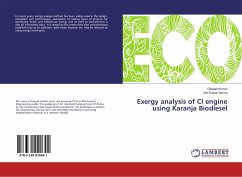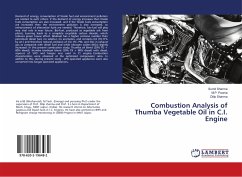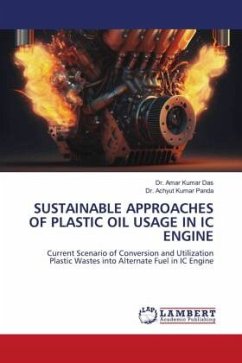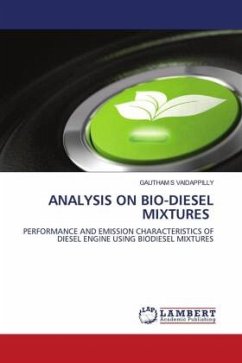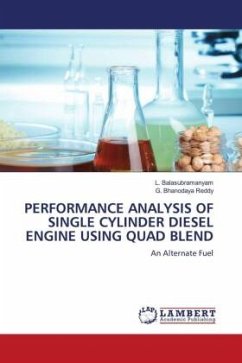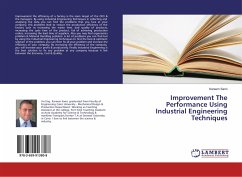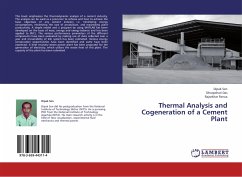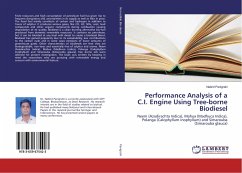
Performance Analysis of a C.I. Engine Using Tree-borne Biodiesel
Neem (Azadirachta Indica), Mahua (Madhuca Indica), Polanga (Calophyllum inophyllum) and Simarouba (Simarouba glauca)
Versandkostenfrei!
Versandfertig in 6-10 Tagen
43,99 €
inkl. MwSt.

PAYBACK Punkte
22 °P sammeln!
Finite resources and high consumption of petroleum fuel has given rise to frequent disruptions and uncertainties in its supply as well as hike in price. The fossil fuel mainly constitute of carbon and hydrogen in addition to traces of sulphur. It produces various gases, like CO, HC, NOx, soot, lead compounds and other organic compounds during combustion causing degradation of air quality. Biodiesel is a clean burning alternative bio-fuel produced from domestic renewable resources. It contains no petroleum, but it can be blended at any level with diesel to create a biodiesel blend. Biodiesel ha...
Finite resources and high consumption of petroleum fuel has given rise to frequent disruptions and uncertainties in its supply as well as hike in price. The fossil fuel mainly constitute of carbon and hydrogen in addition to traces of sulphur. It produces various gases, like CO, HC, NOx, soot, lead compounds and other organic compounds during combustion causing degradation of air quality. Biodiesel is a clean burning alternative bio-fuel produced from domestic renewable resources. It contains no petroleum, but it can be blended at any level with diesel to create a biodiesel blend. Biodiesel has gained popularity due to its sustainability, low contributions to the carbon cycle and in some cases emissions of lower amounts of greenhouse gases. Other characteristics of biodiesels are that they are biodegradable, non-toxic and essentially free of sulphur and aroma. Neem (Azadirachta Indica), Mahua (Madhuca Indica), Polanga (Calophyllum inophyllum) and Simarouba (Simarouba glauca) treeborne oils were selected for present investigation. The book was written by keeping in mind the researchers who are pursuing with renewable energy and concern with environmental feature.



